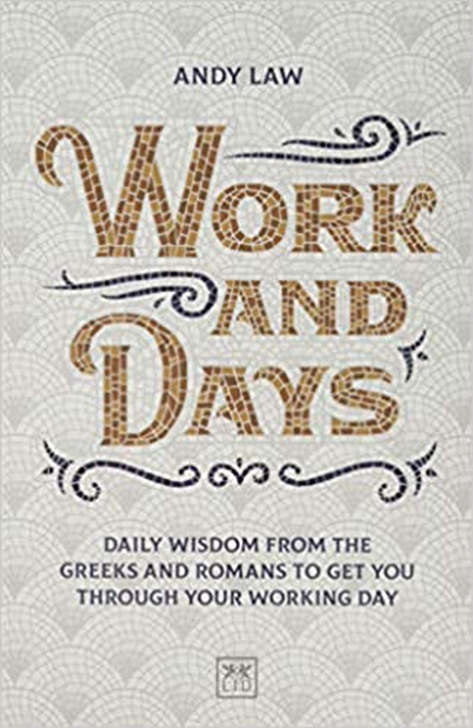
Written by a retired businessman and Classics enthusiast, this book seeks to marry Classical wisdom with business advice for the modern world. Whilst Law admits that ‘The business world and the classical world might not seem at first glance to be happy bedfellows’ (p.4), he claims that the ancient authors could be seen as the originators of business strategy with much relevant advice to offer for a modern context. After all, the language of business is Classical: ‘profit’ from profectus and ‘strategy’ from’strategos, for example; so why not start with the ancients if you are looking to progress in business?
The basic premise of the book is that for each day, there is a quote from an ancient author, a translation, a related business theme (20 themes in total), a ‘Checkpoint’ (which provides more detail about the quote in a business sense) and a ‘Want to know more?’ section which tells you about the classical context for the quotation in greater detail. Each day has its own dedicated page: this is a diary of classical business advice. The themes are varied, including ‘Personal Development’, ‘Internet’, ‘Leadership’ and ‘Human Resources’ – and of course, ‘The Watercooler’. The layout of the book is clear yet the purpose of this book is perhaps less immediately apparent. Does the author expect this to lead to genuine advancement in business? Is it simply a bit of fun? Is the aim to provide the worker with tools with which to ‘spice up’ the internal memos, as suggested by Law? Or all of the above? Certainly, the book appears to be a light-hearted recipe for combining business and Classics, and the author makes the valid point that the ancients grappled with much the same issues that we do; therefore, if we listen to the voices from the past, we may learn something about how to approach the future.
The quotes in this ancient / modern business manual are judiciously chosen and often humorous: one such amusing example is ‘Almost no one dances sober unless they are insane’ (Cicero, Pro Murena 13) with advice about holding back at that office Christmas party. The inclusion of the original text as well as the translation means that some quotations could be used as a lesson starter, discussion point or extension activity. The business advice in the ‘checkpoint’ section often appears to be common sense and sound advice for getting on in the workplace; the language is straightforward and not overly technical. The ‘Want to know more?’ section is a welcome addition to contextualise the starting quote and often gives biographical details of the author as well as interesting anecdotes. The style of the language is informal – often the business advice includes the author's own experiences written in the first person – but this makes it easy to read and engaging. The reader comes away feeling that they have come to know the author on a personal and professional level. However, at times the link between the quote and the business theme can seem somewhat tenuous (e.g. ‘I'm not looking to buy fish: I need to have a conversation with you’ [Plautus] as offering advice on using the internet and connecting with your customers). Some of the quotes are enigmatic and benefit from the extended explanation to set them in context. This is an enjoyable read and most likely would be used to dip in and out of, perhaps as discussion points. Whilst clearly aimed at a more mature audience, there are also instances where some quotes could be used for philosophical debate in schools, covering themes such as citizenship and justice. The translations are somewhat free but serve the purpose of the book.
On the whole, this book is an engaging, straightforward and enjoyable read which could be a welcome addition to a school Classics library for sixth-formers. It is interesting and instructive to explore the links between the concerns of the Classical world and those of the modern-day business setting, and to listen to the soundbites of the ancients. This book would be an ideal stocking filler for any Classics enthusiast.


